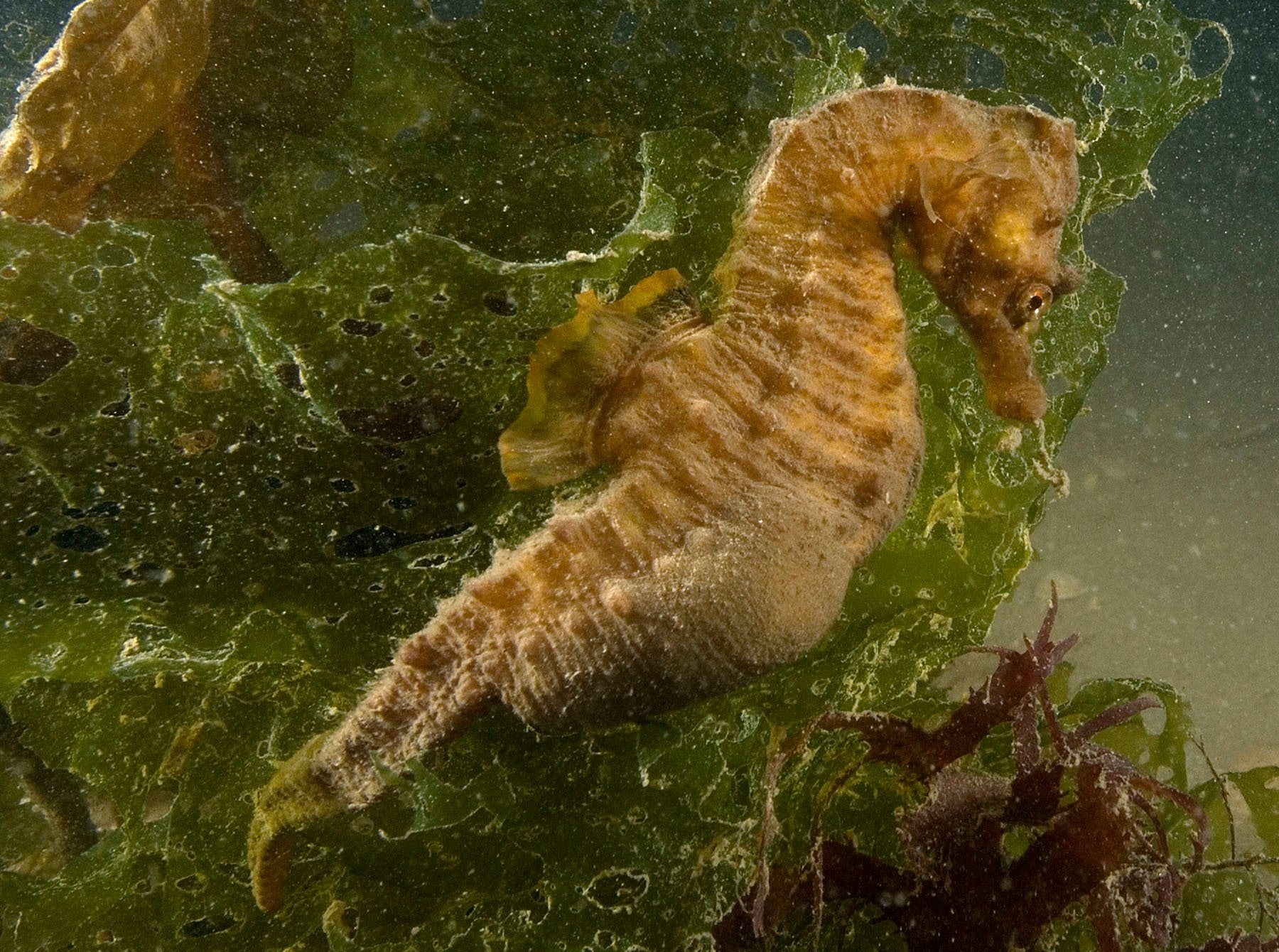Seahorses and little terns are returning to UK coasts, Wildlife Trusts says
Conservation success comes amid difficult year for marine wildlife with plastic pollution still causing major problems

Your support helps us to tell the story
From reproductive rights to climate change to Big Tech, The Independent is on the ground when the story is developing. Whether it's investigating the financials of Elon Musk's pro-Trump PAC or producing our latest documentary, 'The A Word', which shines a light on the American women fighting for reproductive rights, we know how important it is to parse out the facts from the messaging.
At such a critical moment in US history, we need reporters on the ground. Your donation allows us to keep sending journalists to speak to both sides of the story.
The Independent is trusted by Americans across the entire political spectrum. And unlike many other quality news outlets, we choose not to lock Americans out of our reporting and analysis with paywalls. We believe quality journalism should be available to everyone, paid for by those who can afford it.
Your support makes all the difference.Seahorses, little terns and crawfish are among the creatures making a comeback with the help of conservation action around the UK’s coasts, the Wildlife Trusts has said.
It has also been a good year for sightings of marine wildlife as thousands of volunteers helped survey shores around the country to gather information and monitor marine protected areas, a review of the year by the organisationxz has found.
It has been a bumper year for nudibranchs, or sea slugs, and a good autumn for sightings of curled octopus by divers, and basking sharks were seen in Cardigan Bay for the first time in three years.
But there was bad news too for marine wildlife, with millions of creatures washed up on beaches along the North Sea coast after a storm in March.
There were sewage spills and storm drains dumping wet wipes and sanitary products onto beaches, while plastic pollution continues to be a major problem and beach cleans took tonnes of litter off the shoreline.
On Alderney, plastic is now present in almost 100 per cent of gannet nests, mostly from fishing industry rope or line, posing a significant risk to birds and chicks.
Beach cleans on the Isle of Wight collected 400 bags of rubbish, while Welsh Wildlife Trust collections picked up 14,095 pieces of litter and in Kent, some 2,892kg of rubbish and 60 shopping trolleys were collected from the Medway Estuary.
Dr Lissa Batey, senior living seas officer at The Wildlife Trusts, said: “This review of sightings and action from across the UK has given a glimpse, a mere taster, of the wonders of our marine wildlife – delightful species that everyone has the opportunity to encounter and learn more about.
“But it has also shown us the problems that remain and the challenges that our sea life faces.
“It’s not too late. We are already seeing recovery in some of our marine protected areas, but we don’t yet have a fully functioning network of nature reserves at sea, where wildlife has the opportunity to thrive.
“That’s why we are looking forward to the third designation of marine conservation zones in 2019 – with these we would have the potential to reverse current marine wildlife declines.”
Conservation successes include Dorset Wildlife Trust’s work with local fishermen in Poole Harbour, who have both Marine Stewardship Council and Responsible Fishing Scheme accreditation for sustainable management of the sea, which is helping seahorses.
As part of the scheme, Dorset fishermen have been reporting their marine sightings and have been finding the extremely rare short-snouted seahorse off the Purbeck coast.
Seahorses face threats from trawlers which scour the seabed and from yacht anchors, so good management is essential to their survival, the trust said.
In Cornwall, the spiny lobster or crawfish is making a comeback from overfishing in the 1960s and 1970s, while undulate rays seem to be thriving along the south coast, though they are still considered endangered following over-exploitation.
And the little tern, one of the UK’s rarest breeding seabirds, has scored some successes with the help of conservation work.
The bird successfully bred at Cumbria Wildlife Trust’s South Walney nature reserve for the first time in 33 years, while targeted management of habitat by Essex Wildlife Trust saw them nest on Tollesbury Wick nature reserve for the first time in 10 years.
And despite concerns in the spring that late snowfall in the Arctic would hit the breeding success of sanderlings which migrate through the UK, the autumn migration saw record numbers at Gibraltar Point, Lincolnshire.
Ulster Wildlife surveyed a newly discovered seagrass bed on the floor of Glenarm Bay for the first time in the summer, which covers 60,000 square metres, or 15 acres.
The trust is calling for statutory protection of the important habitat for species from juvenile fish to stalked jellyfish.
During other surveys around the coasts, species with evocative names were recorded from the acorn barnacle to peppery furrow shells and by-the-wind sailors, as well as hedgehog sponges, a conger eel and baby cuttlefish.
Millions of marine animals including crabs, starfish, mussels and lobsters were washed up on the east coast after stormy weather in the spring, with Yorkshire Wildlife Trust working with fishermen to rescue lobsters that were still alive among the devastation.
And several rarely-seen boar fish, a Sowerby’s beaked whale and a juvenile basking shark were all found dead on beaches around the country.
Press Association
Join our commenting forum
Join thought-provoking conversations, follow other Independent readers and see their replies
Comments